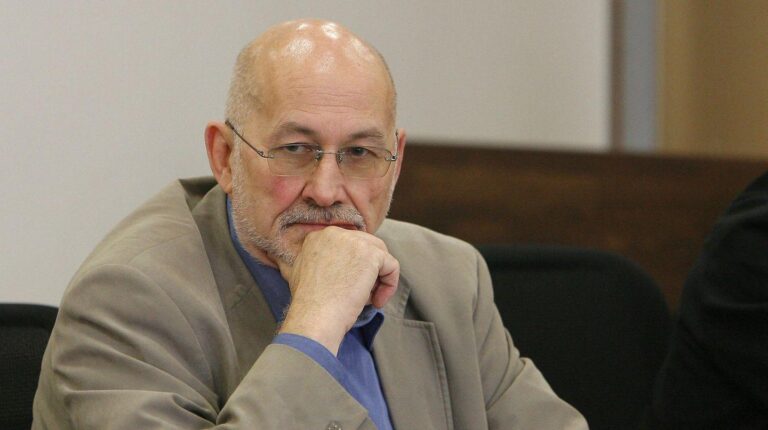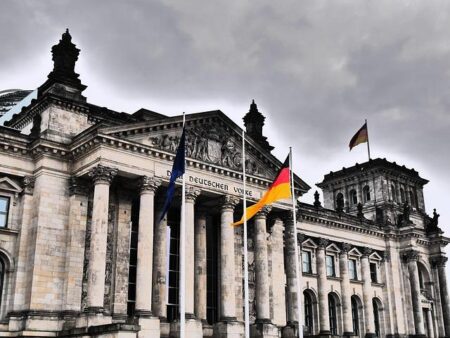Horst Mahler, a controversial figure whose political journey spanned the far left and later the far right in Germany, has died at the age of 89. Once a founding member of the radical leftist group Red Army Faction, Mahler’s career was marked by dramatic ideological shifts that made him a polarizing voice in German politics. His death marks the end of a turbulent life that reflected the complexities and extremes of postwar Germany’s ideological landscape.
Horst Mahler’s Complex Legacy from Revolutionary Activist to Far-Right Figure
Horst Mahler’s life was marked by a dramatic ideological transformation that baffled and provoked Germany’s political landscape for decades. Initially lauded as a founding member of the radical left-wing organization, the Red Army Faction (RAF), Mahler’s early activism focused on anti-capitalist rhetoric and militant opposition to the post-war establishment. His charismatic oratory and legal acumen made him a prominent voice advocating revolutionary change. However, his trajectory took a startling turn in the late 1990s when he embraced far-right nationalism, promoting controversial revisionist views that alienated many former allies.
This ideological pivot complicated Mahler’s legacy, raising questions about the nature of political extremism and personal conviction. The following table outlines key milestones in his controversial journey:
| Period | Affiliation | Notable Activity |
|---|---|---|
| 1968-1970s | Far Left / RAF | Legal defense for radicals; participated in RAF founding |
| 1980s-1990s | Detained / Trial | Convicted for terrorist activities; incarceration |
| Late 1990s-2010s | Far Right | Anti-Semitic publications; Holocaust denial |
- Polarizing figure: Revered by radical leftists, vilified by mainstream society post ideological switch.
- Legal battles: Multiple convictions for hate speech and extremist activity aid in defining his notoriety.
- Legacy debate: Calls for reevaluation of extremist rhetoric’s impact on political discourse.
Examining the Ideological Shifts and Controversies Surrounding Mahler’s Life
Horst Mahler’s life remains a striking study in the volatility of ideological commitment, marked by a dramatic evolution that confounded both supporters and critics alike. Once a fiery advocate of radical left-wing politics during the tumultuous 1960s and 1970s, Mahler embraced causes aligned with anti-imperialist and Marxist ideologies. However, a seismic shift later in life saw him reject these early convictions, gravitating instead toward far-right nationalism, with positions that spurred widespread controversy and condemnation. This rare transformation underscores the complexity of his political identity and the borders between ideological extremities.
Key points in Mahler’s ideological trajectory included:
- Co-founding the Red Army Faction’s predecessor, reflecting his initial leftist militancy.
- Becoming a vocal critic of the German state and Western capitalism.
- Later adopting aggressive nationalist rhetoric and Holocaust denial.
- Enduring multiple incarcerations for hate speech and extremist activities.
| Period | Political Alignment | Notable Actions | ||||||||
|---|---|---|---|---|---|---|---|---|---|---|
| 1960s-1970s | Far Left | Co-founder of radical left groups | ||||||||
| 1980s-1990s | Transition Phase | Shifted focus from Marxism to nationalism | ||||||||
| 2000s-2020s | Understanding the Impact of Mahler’s Radical Views on German Political Discourse
Horst Mahler remains one of the most controversial figures in modern German political history, his radical views leaving an indelible mark on public discourse. Initially known as a founding member of the Red Army Faction, Mahler’s far-left activism challenged post-war West Germany’s social fabric and catalyzed fierce debates about extremism and state authority. His early rhetoric emphasized anti-capitalist and anti-imperialist themes, which resonated with a segment of the population disillusioned by the Cold War’s geopolitical realities. However, his later shift towards far-right nationalism and Holocaust denial further polarized political discussions, proving how his evolving ideology served as a litmus test for Germany’s democratic resilience in confronting extremist ideologies from both ends of the spectrum.
Closing RemarksHorst Mahler’s life traced a turbulent path through the ideological divides of postwar Germany, from militant left-wing activism to far-right extremism. His death at 89 closes a chapter marked by radicalism, controversy, and profound contradictions. As Germany continues to grapple with the legacies of its polarized past, Mahler’s complex story serves as a stark reminder of the volatile forces that have shaped its political landscape. |




